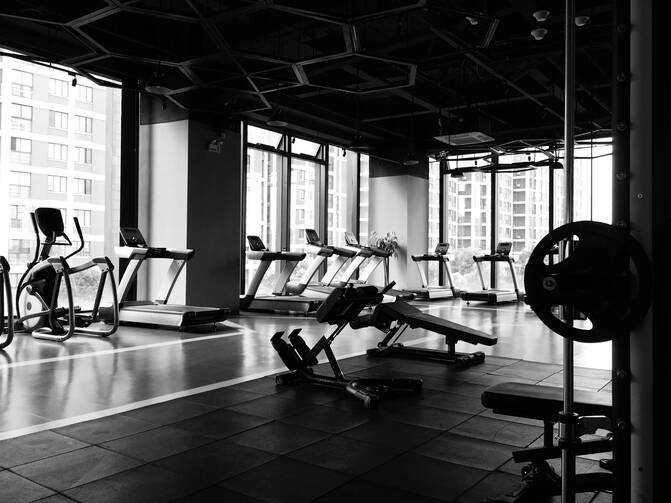A Reflection for Wednesday of the Third Week of Easter
Find today’s readings here.
“I am the bread of life;
whoever comes to me will never hunger,
and whoever believes in me will never thirst.” (Jn 6:35)
A somewhat off-putting trend showing up on my Instagram feed lately is that of personal trainers who use their Catholic faith as a catalyst for recruiting clients to become #FitForTheKingdom.
The irony is not lost on me that these reels and posts are not randomly showing up on my feed; they are evidence that I spend a not-insignificant amount of time on fitness-related social media content, regularly go to the gym, and have been known to post some of my own workouts—all of which Instagram’s omniscient and omnipresent algorithms prey on. So, it is perhaps a cowardly move on my part to criticize some of the creators of #JackedandHoly, #GainsforJesus and #CatholicFitness content, but I think there is something we need to respond to that today’s Gospel reading offers me a foray into.
Aside from the unfortunate implications that can be drawn from such postings—that those who are struggling to lose weight or build muscle mass, who don’t have six-pack abs, run countless times a week or count their calories, micros and macros, before every meal are less worthy of eternal life—such shameless manipulation of the Gospel message for capital gain needs to be called out.
We all know that it is largely true that “you are indeed what you eat,” or to put it in the crude way countless fitness reels on social media present: Abs are made in the kitchen. We also know that for many people, no matter what they eat, the challenges associated with weight loss and control are nearly impossible to get a handle on without medical intervention, which can leave people feeling powerless, defeated and depressed.
The Gospel message is clear that you are indeed what you eat, or “we become what we receive,” as St. Augustine said, but there is an important difference between the bread of life and your fitness regime’s mandated protein and carbohydrate intake. As we hear in subsequent verses of the passage provided today: “I am the living bread that came down from heaven; whoever eats this bread will live forever; and the bread that I will give is my flesh for the life of the world.” No conditions are placed on the bread that is eaten, we will experience a total transformation in ourselves and that by the mere virtue of its consumption will attain eternal life.
God does not set up impossible obstacles for our sanctification or worthiness. All we are asked to do is to believe in the Son of God; the paschal mystery of his life, death and resurrection; and the “will of the one who sent me,” as Jesus says of the Father. And even if we do not entirely believe in the transformative powers of the bread that God offers us in God’s only son, we are still able to access eternal life. All we are asked to do is to come, for “I will not reject anyone who comes to me,” says the Lord.
Is there room in your heart to come to Jesus as you are, today, whether or not you’re fully prepared to eat of his body and drink of his blood just yet?
“I will not reject anyone who comes to me,” Jesus says, for it is “the will of the one who sent me that I should not lose anything of what he gave me.”
Come—this bread of life is for everyone and is free of any judgment or shame.








